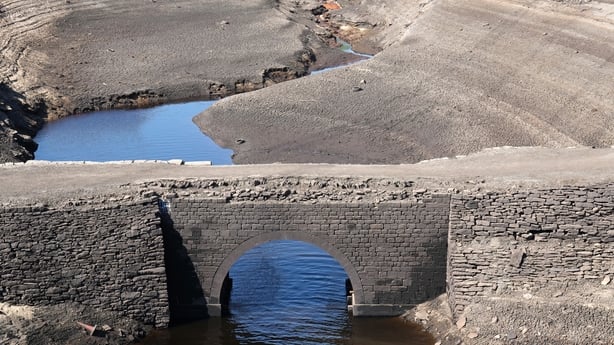The UK government has, as expected, formally declared parts of England to be in drought following the driest summer for 50 years.
While the declaration does not automatically trigger any government-level intervention, it does allow water companies to take further steps to manage supplies.
All water companies must submit a plan detailing restrictions customers will face, including temporary limits on water use, such as hosepipe bans.
They can also apply for drought orders and permits.
These give companies further powers, including abstracting more water from rivers, reservoirs or aquifers.
Non-essential water use, such as commercial car washes and swimming pools, can be temporarily restricted.

With limited supplies, some customers may be asked to access water from standpipes (for fire hoses) or mobile water tanks.
Farmers could face restrictions on water usage for spray irrigation.
The UK Environment Agency can ask the government to restrict water use in industrial manufacturing or food processing.
In a move to limit the danger of wildfires, Natural England, the government's conservation advisory body, can restrict access to areas such as national nature reserves.
Essential supplies 'safe'
The Environment Agency has reassured the English public that essential water supplies are safe.
However, the total stock of water in its reservoirs at the end of July had fallen to just under two thirds (65%) of its normal capacity.
This is the lowest level for that point in the calendar year in almost three decades.
The majority of reservoirs are currently classed as "exceptionally low" for this time of the year, with only four of them recording water levels that are normal.
Levels are lowest in three reservoirs which are well under half capacity.
Two in Cornwall, Colliford reservoir (43% of capacity) and Stithians (44%), and the Derwent Valley reservoirs in Derbyshire (45%).
Four water companies, Welsh Water, Southern Water, Thames Water, and South East Water have all imposed hosepipe bans, while Yorkshire Water has announced a ban will start on 26 August.
Additional reporting PA


